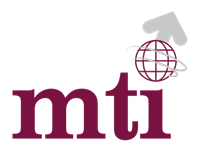POLICY AND STRATEGY DIRECTORATE
The Policy and Strategy Directorate is another core Directorate within the MTI. The directorate works closely with other directorates, Ministries, and Agencies, by providing policy advice and direction on domestic and international policy issues; leading national business reforms; project monitoring and evaluation; data analysis and business facilitation. The PSD also prepares and reviews strategic plans, policies, briefs, technical papers and presentations.
CORE UNITS OF THE POLICY AND STRATEGY DIRECTORATE
The Policy and Strategy Directorate is comprised of the following Units:
- Policy Development, Business Reforms and Research Unit (whichcomprises of the Policy Sub-unit, the Business Reforms Sub-unit, and the Research Sub-unit).
- Project Management Unit.
- Monitoring and Evaluation Unit.
- Single Electronic Window Unit.
KEY FUNCTIONS OF THE POLICY & STRATEGY DIRECTORATE
Research Unit
A crucial role of this Unit is to conduct data analysis in response to requests made by internal and external stakeholders to inform public policy and decision-making with respect to trade, business and investment. Other activities of the Unit include conducting research and advising on the potential impact of new and existing policies and trade and investment agreements.
More specifically, the Unit performs, inter alia, the following functions:
- to collect, analyze and disseminate data and information in response to requests made by internal and external stakeholders to inform public policy with respect to trade, business and investment;
- to advise on the impact of new and existing policies and trade and investment agreements; and
- to guide policy formulation so that it is aligned to national macroeconomic, trade and investment policy objectives.
Policy Unit
The Policy Unit coordinates and manages the policy development process in collaboration with key stakeholders in the areas of trade, business and investment. Specifically, the Unit facilitates and fosters policy dialogue between the Ministry and other public and private sector agencies. The Unit also monitors and analyzes domestic, regional and international policy trends and assesses their impact on the domestic business environment. More specifically, the Unit performs, inter alia, the following functions:
- to coordinate policy development and implementation among internal and external stakeholders in the areas of trade, business and investment;
- to facilitate and foster policy dialogue between the Ministry and other public and private sector agencies; and
- to monitor and analyze domestic, regional and international policy trends and assesses their impact on the domestic business environment.
The Policy Unit has recently completed and/or is currently developing the following policy documents:
- National Special Economic Zones Policy
- Manufacturing Policy
- Services Policy
- Secured Transactions Policy and Collateral Registry
- National E-Commerce Strategy
Business Reforms Unit
The Business Reform Unit is tasked with the responsibility of enhancing the business environment in Trinidad and Tobago by streamlining the policies procedures in doing business in the country to make them less bureaucratic, less time consuming and less costly.
The Unit performs, inter alia, the following functions:
- to provide technical assistance and advisory support in a range of areas, including business registration procedures, commercial law, tax administration, government reforms, contract enforcement, and public-private dialogue;
- to develop procedures and mechanisms to reduce the cost and time of doing business in Trinidad and Tobago; and
- to develop planning and implementation frameworks in order to execute business reforms
The Project Management Unit undertakes, inter alia, the following functions:
- monitors and evaluates all projects under the MTI’s Development Programme;
- transforms strategic activities and initiatives into viable projects to support trade, business and investment;
- ensure projects are implemented based on best practice project management standards; and
- provides guidance to executing agencies, monitoring agencies and other entities on financial matters related to the Development Programme.
The Monitoring and Evaluation (M&E) Unit was established in 2011 to support development effectiveness, accountability and transparency in the MTI operations. The Unit was established in accordance with a 2008 Cabinet mandate and the national policy agenda developed by the Ministry of Planning and Sustainable Development (MPSD) in 2011. It supports the work of the MTI by strengthening the quality of its development interventions through results-based management.
The Unit undertakes, inter alia, the following functions:
- to develop its strategic framework to guide the operations of the MTI including it Trade Implementing Agencies;
- to track the progress of development interventions undertaken within the MTI and its Trade Implementing Agencies;
- to assess and recommend specific budget allocations;
- to secure funding from donor agencies; and
- to inform Government and other stakeholders on the performance of the MTI through instructive reports.
Some of the key initiatives the M&E Unit is currently working on include:
- developing a monitoring and evaluation methodology for the MTI;
- conducting performances assessment of Action Plans
- conducting performance assessment of MTI and its Trade Implementing Agencies’ Action Plan for Fiscal 2019
- developing Actions Plans for all Directorates, Support Departments and Agencies for Fiscal 2019/2020; preparing MTI’s quarterly National Performance Reports for the Ministry of Planning and Sustainable Development;
- developing data collection products for the collection of sector data;
- preparing quarterly reports on the MTI Budget Measures for the Ministry of Finance and the Economy; and
- preparing the Annual Administrative Report for Fiscal 2018/2019.
The Ministry of Trade and Industry (MTI) manages the Single Electronic Window (SEW) for Trade and Business Facilitation (branded as TTBizLink) project. This initiative is a collaboration with eight (8) Ministries across twenty five (25) Government Agencies along with the Trinidad and Tobago Chamber of Industry and Commerce. Since the launch of the SEW’s first e-service in 2012 to present, TTBizLink has seen the operationalization of forty seven (47) e-government services. The platform is currently the largest provider of transactional e-services across the GORTT. In this regard, over three thousand, four hundred (3,400) companies and over ten thousand (10,000) individuals are utilising the platform on a regular basis. On average, the TTBizLink platform (www.ttbizlink.gov.tt) receives approximately eighteen thousand (18,000) visits per month.



